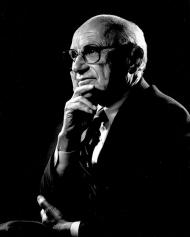Sir Joseph Austen Chamberlain, KG (16 October 1863 – 17 March 1937) was a British statesman, recipient of the Nobel Peace Prize, and half-brother of Neville Chamberlain.
Early life and career
Austen Chamberlain was born in Birmingham, the second child and eldest son of Joseph Chamberlain, then a rising industrialist and political radical, later Mayor of Birmingham and a dominant figure in Liberal and Unionist politics at the end of the 19th century. His mother, the former Harriet Kenrick, died in childbirth. Joseph Chamberlain was so shaken by this event that for almost twenty-five years he maintained a distance from his first-born son. In 1868, Joseph married Harriet's cousin, Florence, and had further children, the oldest of whom, Neville, would become Prime Minister in the year of Austen's death.
Austen was educated first at Rugby School, before passing on to Trinity College, Cambridge. While at Trinity College, he became a lifelong friend of F.S. Oliver, a future advocate of Imperial Federation and, after 1909, a prominent member of the Round Table movement. Chamberlain made his first political address in 1884 at a meeting of the university's Political Society and was vice-president of the Cambridge Union Society.[citation needed]
It would seem that from an early age his father had intended for politics to be Austen's future path and with this in mind he was sent first to France, where he studied at the Paris Institute of Political Studies and developed a lasting admiration for the French people and culture. For nine months, he was shown the brilliance of Paris under the Third Republic, and met and dined with the likes of Georges Clemenceau and Alexandre Ribot.
From Paris, Austen was sent to Berlin for twelve months, to imbibe the political culture of the other great European power, Germany. Though in his letters home to Beatrice and Neville he showed an obvious preference for France and the lifestyle he had left behind there, Chamberlain undertook to learn German and learn from his experience in the capital of the Kaiserreich. Among others, Austen met and dined with the "Iron Chancellor" Otto von Bismarck, an experience that was to hold a special place in his heart for the duration of his life.
While attending the University of Berlin, Austen developed a suspicion of the growing nationalism in the German Empire based upon his experience of the lecturing style of Heinrich von Treitschke, who opened up to him "a new side of the German character - a narrow-minded, proud, intolerant Prussian chauvinism", the consequences of which he was later to ponder during the First World War and the crises of the 1930s.
Austen returned to the United Kingdom in 1888, lured largely by the prize of a parliamentary constituency. He was first elected to parliament as a member of his father's own Liberal Unionist Party in 1892, sitting for the seat of East Worcestershire. Owing to the prominence of his father and the alliance between the anti-Home Rule Liberal Unionists and Conservatives, Chamberlain was returned unopposed on 30 March, and at the first sitting of the new session he walked up the floor of the house flanked by his father and his uncle Richard.
Owing to the dissolution of parliament and the August general election, Chamberlain was unable to make his maiden speech until April 1893. This speech, when delivered, was acclaimed by the four-time Prime Minister William Ewart Gladstone as "one of the best speeches which has been made". That Chamberlain was speaking against Gladstone's Second Home Rule Bill does not seem to have dampened the enthusiasm of the Prime Minister, who responded by publicly congratulating both Austen and his father Joseph on such an excellent performance. This was highly significant, given the bad blood existing between Joseph Chamberlain and his former leader.
Appointed a junior Whip of the Liberal Unionists after the general election, Austen's main role was to act as his father's "standard bearer" in matters of policy. Following the Conservative and Unionist landslide win in the election of 1895, Chamberlain was appointed a Civil Lord of the Admiralty, holding that post until 1900, when he became Financial Secretary to the Treasury. In 1902, following the retirement of Prime Minister Salisbury, Chamberlain was promoted to the position of Postmaster General by the new premier, the Conservative Arthur Balfour.
In the wake of the struggle between his father and Balfour, Austen Chamberlain became Chancellor of the Exchequer in 1903. Austen's appointment was largely a compromise solution to the bitter division of the two Unionist heavyweights, which threatened to split the coalition between supporters of Chamberlain's Imperial Tariff campaign and Balfour's more cautious advocacy of protectionism. While Austen supported his father’s programme, his influence within the cabinet was diminished following the departure of the senior Chamberlain to the back benches. Facing a resurgent Liberal opposition and the threat of an internal party split, Balfour eventually took the Unionists into opposition in December 1905, and in the ensuing rout in the election of 1906, Austen Chamberlain found himself one of the few surviving Liberal Unionists in the House of Commons.
After his father's stroke and enforced retirement from active politics a few months later, Austen became the effective leader of the Tariff Reform campaign within the Unionist Party, and thus a contender for the eventual leadership of the party itself

